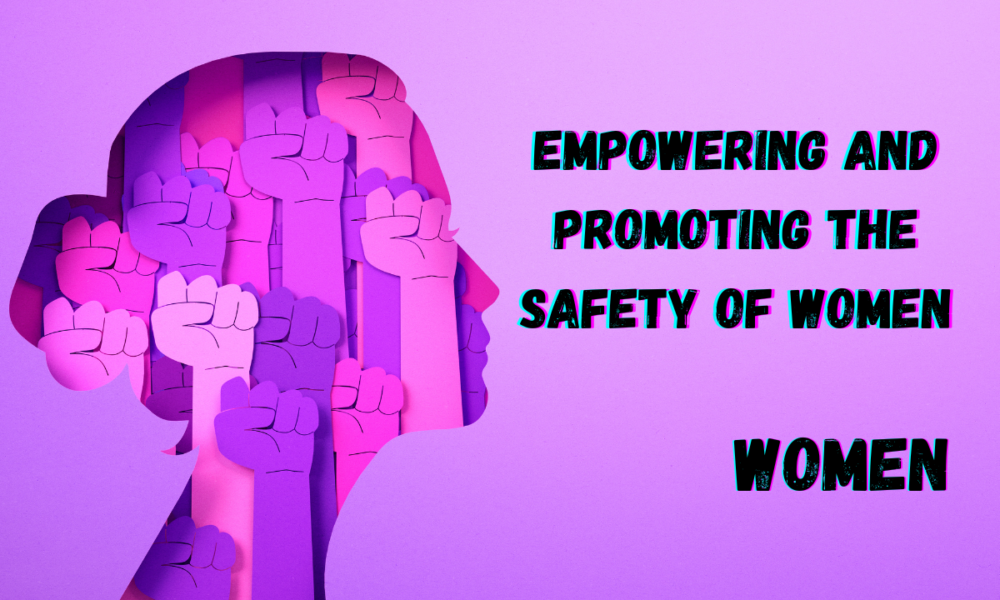Empowering Women Everywhere: The Ultimate Guide to Staying Safe
In today’s world, prioritizing personal safety is crucial, particularly for women. Whether commuting to work, traveling, or just going out for a night with friends, knowing how to stay safe can make a significant difference. However, women often have unique safety concerns that are not addressed in traditional safety guides. That’s why it’s essential to have a comprehensive guide specifically tailored to empowering and promoting the safety of women.
Understanding the Importance of Women’s Safety
Women are more likely to experience violence and harassment than men, making safety a crucial aspect of everyday life. According to a report by the World Health Organization, about 30% of women worldwide have experienced physical or sexual violence from an intimate partner in their lifetime. Additionally, women are also at higher risk of being targeted for certain crimes like sexual assault or human trafficking.
Situational Awareness
- Knowing Your Surroundings
Being aware of your surroundings is the first step in staying safe. Whether walking down a busy street or entering a parking garage, always be mindful of who and what is around you. This heightened awareness can help you anticipate and avoid potential dangers.
- Reading Body Language
Learning to read body language can be a powerful tool in assessing threats. Recognizing signs of aggression or discomfort in others can provide early warning signs, allowing you to take preventive measures.
- Trusting Your Instincts
Never underestimate the power of your instincts. If something feels off, it’s essential to trust that feeling and take appropriate action, whether walking away from a situation or seeking help.
Home Safety Tips
- Securing Your Home
Your home should be a sanctuary of safety. Ensure all doors and windows have robust locks and consider installing a security system. Regularly check for any vulnerabilities that could be exploited.
- Safety Precautions for Solo Living
For women living alone, additional precautions may be necessary. Avoid sharing your living situation publicly, and consider using timers for lights to give the appearance that someone is home even when you’re not.
- Emergency Plans
Having an emergency plan is crucial. Whether it’s a fire, break-in, or natural disaster, knowing what to do and rehearsing it can save precious time and keep you safe.
Personal Safety Tools
- Pepper Spray and Personal Alarms
Pepper spray and personal alarms are effective tools that can deter attackers and draw attention in an emergency. Carry them in easily accessible places and know how to use them correctly.
- The Bulletproof Purse
A bulletproof purse is an innovative safety product designed to provide protection without compromising style. These purses offer a discreet way to carry personal items while also providing a shield in dangerous situations.
- Self-Defense Classes
Taking self-defense classes can boost your confidence and equip you with skills to protect yourself. Many communities offer courses specifically designed for women, focusing on practical and easy-to-learn techniques.
Safety While Traveling
- Staying Vigilant in Public Transport
Public transport can pose various safety challenges. Always stay alert, keep your belongings close, and avoid isolated areas, especially at night.
- Hotel Safety Tips
When staying in hotels, choose rooms close to elevators, avoid ground floors, and always lock your door. Familiarize yourself with emergency exits and keep a flashlight handy.
- Traveling Abroad
Traveling abroad requires extra precautions. Research your destination’s safety guidelines, stay connected with friends and family, and keep copies of important documents in case of emergencies.
Online Safety Practices
- Protecting Personal Information
Your personal information is valuable and needs protection. Be cautious about sharing details online and regularly update your privacy settings on social media platforms.
- Safe Online Dating
Online dating can be fun but also requires caution. Meet in public places, inform a friend of your plans, and trust your instincts if something feels off.
- Preventing Cyberstalking
Cyberstalking is a growing concern. Use strong passwords, regularly monitor your online presence, and report any suspicious behavior to authorities.
Workplace Safety
- Creating a Safe Work Environment
Employers and employees must work together to create a safe work environment. This includes implementing security measures, providing safety training, and fostering a supportive culture.
- Handling Harassment
Knowing how to handle harassment at work is essential. Document incidents, report them to HR, and seek legal advice if necessary.
- Building a Support Network
Having a support network at work can make a significant difference. Connect with colleagues, join support groups, and don’t hesitate to seek help when needed.
Safety During Social Activities
- Going Out with Friends
When going out with friends, establish a buddy system, stay together, and look out for each other. Avoid leaving drinks unattended and have a plan to get home safely.
- Attending Large Events
Large events can be overwhelming and pose safety risks. Stay aware of your surroundings, identify exits, and keep your phone charged in case you need to contact someone.
- Meeting New People
Meeting new people is exciting but requires caution. Choose public places for initial meetings and always inform a friend or family member of your plans.
Safety in Relationships
- Recognizing Red Flags
Recognizing red flags in relationships can prevent potentially dangerous situations. Controlling behavior, excessive jealousy, and isolation from friends and family are warning signs.
- Establishing Boundaries
Establishing clear boundaries is essential for healthy relationships. Communicate your limits and ensure they are respected.
- Seeking Help
If you find yourself in an abusive relationship, seek help immediately. Reach out to friends, family, or support organizations that can provide assistance and guidance.
Community Involvement
- Participating in Safety Programs
Getting involved in community safety programs can make a difference. These programs often provide valuable resources and training to help keep everyone safe.
- Volunteering
Volunteering with local organizations can help build a safer community. Whether it’s a neighborhood watch group or a women’s shelter, your involvement can have a positive impact.
- Supporting Legislation
Supporting legislation that promotes women’s safety is crucial. Stay informed about relevant bills and advocate for changes that protect women and enhance safety.
Conclusion
Women’s safety is a multifaceted issue that requires awareness, preparedness, and community support. By implementing the tips and strategies outlined in this guide, you can take proactive steps to ensure your safety and well-being. Remember, your safety is paramount, and taking these measures can make a significant difference in your daily life.











